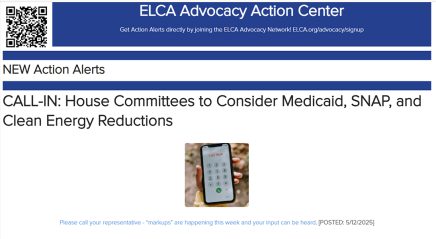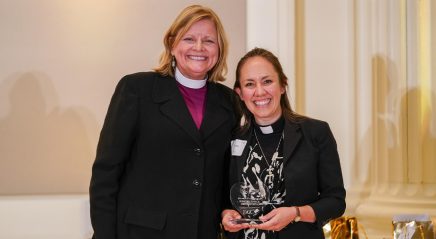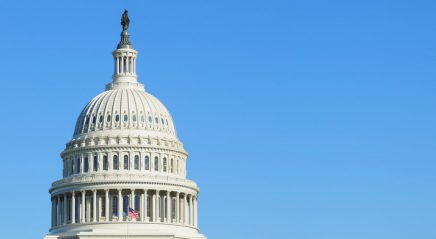It may start with a hyperlocal question: A pastor, noticing a food bank running out of products and experiencing longer lines, asks, “Why is that? What can we do?”
State and federal government decisions can noticeably affect our lives, including those of our neighbors at the food bank. Our questions and experiences as faith-centered advocates are a way to show our love for our neighbors and communities.
While federal actions may get the bulk of attention, “many things come to the state level to be implemented, so states have a big stake,” said Amy Reumann, ELCA senior director for Witness in Society. “Advocates from our faith communities can provide input so that whatever legislation is being worked on can reflect actual needs on the ground.”
She offered this starting point: “Say there’s a perplexing issue or something of concern being seen in a church’s community, like their creation care work. What bill may make a difference?” An ELCA-affiliated state public policy office in your area can be an important resource in such situations. “Their work is providing on-ramps for people to learn how to get involved,” Reumann said. Synods and others can also help make connections, such as with a local organization working on the issue of concern.
Advocacy action around state policy can be less intimidating than the federal level for many—and the results can be more immediate. “It’s easier to get the attention of your state legislator and build a relationship,” she said. “Going to your legislator and saying, ‘Here’s something we need you to know about, and how can we solve this together?’ can be very fruitful.”
When he took part in a state policy office’s advocacy day, ELCA Hunger Advocacy Fellow Joey Chin felt another advantage in local engagement. “I was in Richmond with Virginians of many different faith groups, asking for just policies related to affordable housing and education,” he said. “That was important, but acting in the state capitol also strengthened local ties by fostering bonds and connections.”







